
We’ve often been told that milk is a healthy drink, one that offers plenty of nutrients and can help promote strong bones. Yet, the topic is far from straightforward. You’ll have noticed this if you’re trying to answer the question is milk good for you, as some writers are strong advocates for milk, while others suggest that milk causes much more harm than good.
In this post, we’re taking a close look at the evidence that underlies both perspectives. We’ll also highlight the different types of milk and how their health impacts vary.
Before we do so, it’s important to mention that nutrition science is inherently complicated. There’s no easy way to work out the exact impact that a given food has on the human body or on disease risk. After all, people vary dramatically in their diets and lifestyles. Plus, each food contains a variety of different nutrients and compounds, which can all have their own impacts.
This is why foods like eggs, butter, and coconut oil (to name just a few) are under so much debate.
And, in the end, you’ll need to look at how your body responds to each type of food. Some people find that they can digest milk well and it has no ill effects. Others experience side effects when they have even a little milk.
P.S. If you find that you don’t get through a full container of milk, try freezing the excess. This way you’re not wasting any.
Is Milk Good For You?
- The Benefits Of Milk
- The Risks And Problems Of Milk
- Which Type Of Milk Is Best
- Milk Versus Plant-Based Milk
- Does Milk Cause Inflammation?
- Final Thoughts
The Benefits Of Milk
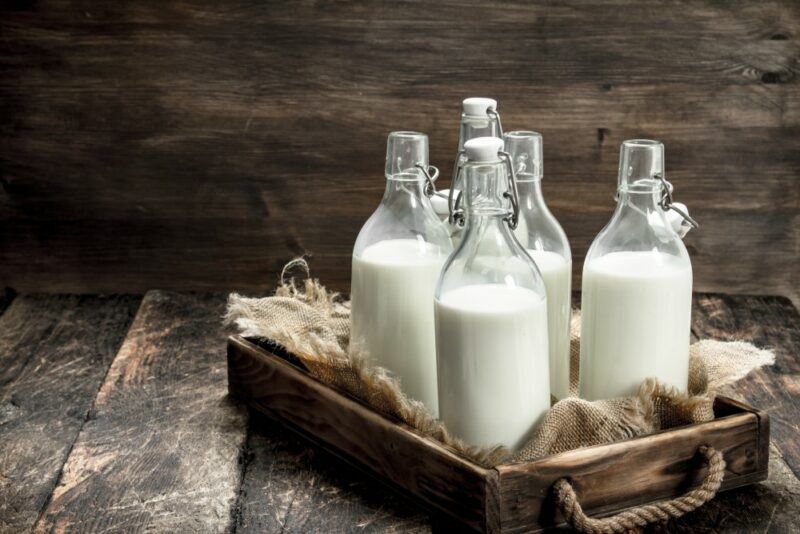
Offers Plenty Of Nutrients
Many of us grew up being told that milk was good for us – and the nutrient content was the main reason why. Milk is rich in a variety of important nutrients, including calcium, potassium, phosphorus, vitamin D, vitamin B12, and vitamin A.
Each of these nutrients plays may different roles in human health. For our bodies to work well, we need an adequate intake of all the essential vitamins and minerals, along with macronutrients like protein.
Milk won’t give you all the nutrients that you need in one go, no food can do that. However, it is nutrient-dense and is a fantastic addition to your diet.
The versatility of milk makes it one of the easiest ways to increase your nutrient intake. You can drink it as-is, include it in smoothies or oatmeal, have it in your coffee, or use it in many different recipes.
Contains Quality Protein
Milk provides around 8 grams of protein per 8-ounce glass. It’s an easy way to increase your protein intake, as you can use milk as the base of a protein shake or simply drink it on its own.
Around 70% or 80% of the protein in milk is casein, while whey makes up the remainder. Both types are considered quality proteins. This means that they contain all the amino acids that we need and cannot produce ourselves.
Whey is particularly interesting, as it includes branched chain amino acids (BCAAs) like valine, leucine, and isoleucine. You might have heard about BCAAs before. They’re often promoted as being powerful for muscle development and energy during exercise.
Milk May Help Your Bones
The claim that milk helps with bone health isn’t just familiar – it’s also accurate. The effect partly comes from the nutrients in milk, including vitamin K2, calcium, and potassium, along with the protein. These nutrients all help with bone health.
Some of the other nutrients, like vitamin D and magnesium, help our bodies to absorb calcium.
While all these nutrients can be found in other foods too, milk has an ideal balance of them for your bones.
May Keep You At A Healthy Weight
This is an interesting one. Some studies suggest that regular consumption of full fat dairy products, including milk, can decrease the risk of obesity. This effect may be partly because full fat milk is more satisfying, helping people to feel full for longer and decreasing the risk of overeating.
Some components of milk have been linked to weight loss or decreased weight gain too, like the conjugated linoleic acid, calcium, and protein.
Offers Other Health Benefits
Milk can help with other areas of health too, like reducing the risk of strokes and heart disease. Milk has been linked to improved dental health too. This is partly because the milk helps to protect the enamel on the teeth. Plus, the habit of drinking milk may decrease the consumption of sugar-sweetened beverages, particularly in children.
These effects aren’t surprising, as each nutrient in milk has a variety of impacts on your body. The same is true for most whole foods.
The Risks And Problems Of Milk

So far, milk sounds fantastic, but there are some serious areas of concern too.
Lactose Intolerance
Milk contains a type of sugar called lactose, which is made up of galactose and glucose. The galactose and glucose sugar molecules need to be split from one another during digestion. If this split doesn’t happen, then lactose begins to ferment in the large intestine, leading to gas and symptoms like abdominal pain and flatulence.
People who cannot fully digest lactose and experience symptoms are said to be lactose intolerant. The effects happen because the lactase enzyme is not fully functioning.
There’s nothing unusual about this, as mammals typically lose the ability to digest lactose after they have been weaned. Humans appear to have developed an exception to this pattern, where the lactase enzyme remains active well into adulthood. Despite this, around 70% of the global population is lactose intolerant.
However, the ability to digest lactose varies dramatically depending on ethnicity. People of African or Middle Eastern descent, for example, are more likely to be lactose intolerant than European people.
If you are lactose intolerant, then dairy products like milk aren’t going to help you much at all. You might be able to tolerate small amounts, particularly of low lactose dairy products. Still, even then, you’ll need to be careful.
Milk Allergies Exist Too
Lactose intolerance isn’t the only problem. Some people have a fully functioning lactase enzyme but still experience side effects when they drink milk.
This happens because of an allergic reaction, either to the whey or the casein in milk. Some symptoms are similar to other types of allergic reactions, such as a rash and swelling of the lips or throat. Increased mucus production can happen too.
And, to make matters more complicated, milk allergies can cause digestive challenges too, like stomach cramps and diarrhea. This can make it difficult to work out whether you are lactose intolerant or allergic to milk.
A milk allergy is more likely if you’re sensitive to gluten, as the molecular structure of casein is similar to gluten. You might also be more sensitive to milk if you have a leaky gut, irritable bowel syndrome, or related conditions.
It Contains Saturated Fat
Milk isn’t very high in fact, especially if you focus on the low fat varieties. Still, it does contain some and most of this is saturated fat.
Saturated fat is often seen as incredibly unhealthy and thought to increase cholesterol levels and the risk of heart disease.
These days, saturated fat is still considered to be less healthy than most other types of fat, but the precise health impacts are under fierce debate. Saturated fat might end up being better than we previously assumed. There’s even the chance that it offers some health benefits.
Still, if you are trying to keep saturated fat levels low, then you’ll need to keep an eye on your milk intake.
The Potential For Health Issues
While milk is often seen as incredibly healthy and nutritious, not everyone agrees. Instead, some theories suggest that milk may contribute to health problems, rather than making things better.
For example, one study found that high milk intake is linked with an increased risk of fractures and even death compared to people who consumed less. The study was observational, so it could not prove cause and effect. Even so, it suggests milk’s effects on health aren’t clear-cut.
There may be other undiscovered links between milk and health too.
So far, there’s much more evidence for the health benefits of milk than for potential issues. If you are concerned, then you could choose to cut down your milk intake, rather than avoiding milk entirely.
Which Type Of Milk Is Best?
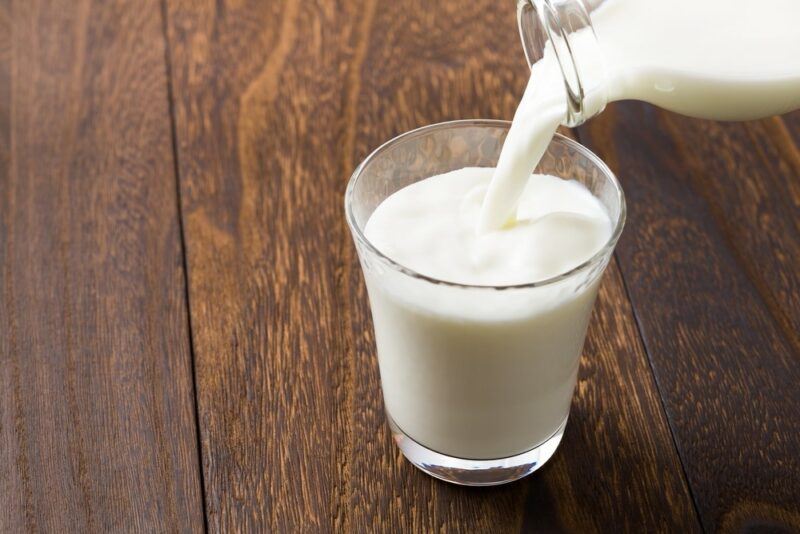
So far, we’ve been talking about milk as a single product. But, of course, there are many types of milk – each with their own features.
Whole Milk
Whole milk is often avoided because of its fat content. It contains around 3.25% milk fat, compared to just 1% for low-fat milk and 0.5% for skim milk.
Yet, as we’re starting to understand, fat isn’t inherently unhealthy. Even saturated fat may be less harmful than we once thought.
Whole milk has some advantages too. For one thing, it often contains more omega-3 fatty acids than the lower fat types of milk. Whole milk can also be more satisfying than lower fat milk, which can be useful if you’re trying to lose weight.
Low Fat And Skim Milk
The lower fat types of milk are often recommended for health. They’re less controversial than whole milk, as low-fat milk and skim milk contain fewer calories and less saturated fat.
All of these types are decent sources of vitamin D and calcium.
The best choice might depend on the type of diet that you’re following. If you’re trying to keep calories and fat intake low, then low fat or skim milk is a logical choice. But, if you’re on a low carb diet instead, then the higher fat content of whole milk could be important.
Organic Or Grass-Fed Milk

Organic milk comes from livestock that is raised using organic methods. There are often strict requirements that must be followed, often including the humane treatment of animals, that they’re given organic feed, not treated with growth hormones, and are allowed to graze.
Theories suggest that organic milk is healthier than conventional milk. This may include a better balance of fatty acids and more nutrients. However, studies into milk have not found many consistent differences between organic and conventional milk.
This isn’t so surprising, as there are many differences between one farm and the next, making it hard to compare between the types of milk.
Grass-fed milk comes from cows that are given grass, rather than manufactured feed. This milk might have similar benefits to organic milk.
While the evidence isn’t all in, it’s clear that organic or grass-fed milk may be better for you than conventional milk. There’s little doubt that the production of this type of milk is kinder on cows and is good for the environment, so there’s plenty of reasons to make the switch.
Of course, organic and grass-fed milk tend to be more expensive than regular milk. It’s not clear whether the potential benefits of organic or grass-fed milk is worth the extra cost. You’ll need to weigh this up for yourself.
Raw Milk
Raw milk is a controversial option. Most of the milk that we buy has been pasteurized, which involves heating the milk so that dangerous microbes are killed. The milk is also homogenized. This process involves using pressure to evenly dispense the fats in the milk.
In contrast, raw milk avoids the pasteurization and homogenization steps. This creates a more natural product that’s similar to what we consumed before pasteurization became common.
Advocates claim that raw milk is more natural and has a better balance of nutrients, fatty acids, and amino acids. It may also be more helpful for people with allergies, immune challenges, and lactose intolerance.
Such claims are heavily debated. There’s little evidence that raw milk is healthier, while the lack of pasteurization does make raw milk riskier than regular milk. Even if animals are raised well and care is taken, there’s still the risk of harmful microbes in the milk.
Lactose Free Milk
Lactose free milk gives you the benefits of milk without the problems that come with lactose intolerance. This isn’t surprising, as the product is real milk. The only difference is that it is treated with the lactase enzyme, which breaks down the lactose for you.
The approach is an easy way to still enjoy the flavor and texture of milk. After all, plant-based milk is quite different to dairy milk.
Of course, because we’re still talking about milk, the rest of the problems we mentioned earlier are still present.
Milk From Other Animals
We’ve been talking about milk from cows, but this isn’t your only option. The most common alternatives are sheep and goat milk. Both options may be useful if you’re allergic to the proteins in cow’s milk. There are other benefits too.
Sheep milk is particularly high in protein and contains higher levels of calcium, phosphorous, and various vitamins than milk from cows. This type of milk may be easier to digest too, making it helpful for people who cannot tolerate cow’s milk.
Goat milk is useful for digestion too. It’s another high calcium option and contains plenty of important fatty acids. The milk is also thought to help with your gut bacteria, as it is rich in oligosaccharides.
While goat milk and sheep milk each have a distinctive flavor and are harder to find than milk from cows, they may be worth the effort.
Milk Versus Plant-Based Milk
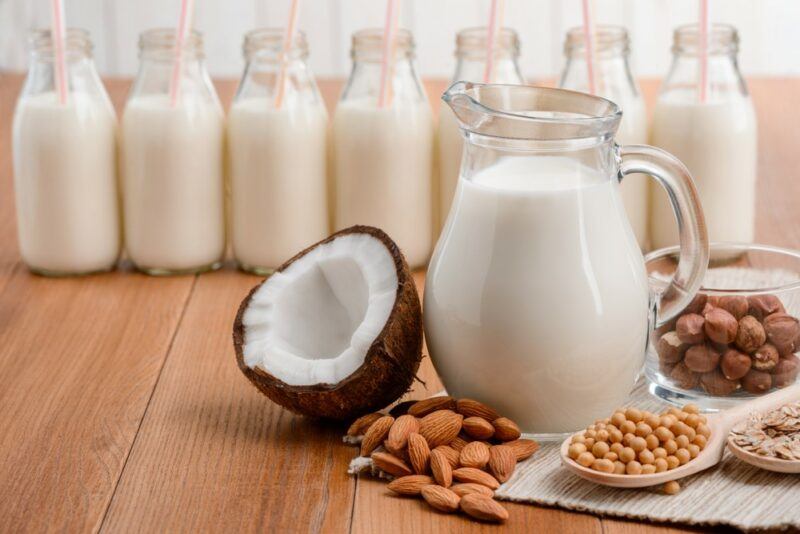
Many people get around the issues with milk by drinking plant-based milk instead. Soy milk, coconut milk, and almond milk are the most common types, although there are plenty of others too.
Plant-based milks often have one distinguishing ingredient, like soy, and a variety of additions to give the drink the desired color, flavor, and texture. Some products combine multiple products instead, like a plant-based milk that uses hemp and soy as ingredients.
You can use plant-based milks in much the same way as dairy milk, like in coffee or as part of a recipe. Most are lower in calories than milk and are lactose free, so they can seem like excellent alternatives.
However, none of the plant-based milk products are exactly like regular milk. Some can behave strangely when you use them in hot coffee or have their own distinct flavor. Coconut milk is a classic example here, as the coconut flavor of the liquid works well in some drinks and horribly in others.
Plant-based milks don’t have the same nutrient balance as real milk either. They often contain fewer nutrients and less protein. They also lack the animal-specific nutrients, like CLA and vitamin B12.
Some plant-based milks are fortified to make them more nutritious. However, this process means that they’re more heavily refined and contain additives. In the end, plant-based milks are a useful practical alternative to milk, but don’t expect them to be exactly the same.
Does Milk Cause Inflammation?
Inflammation is a necessary process in the body, but it isn’t always a good thing. Ongoing inflammation can cause many negative effects throughout our bodies. In fact, inflammation plays a role in the development of many diseases.
Dairy often gets swept up in the inflammation debate. Some people end up cutting out dairy entirely in an effort to decrease their inflammation.
However, the link between dairy and inflammation isn’t as strong as you might think. Dairy might even help to reduce inflammation for some people.
Research into this field is complex, as is always the case for nutrition and health. After all, our diets, bodies, and lifestyles all have many components that interact with one another.
So far, it seems likely that dairy either has no inflammatory effect or is beneficial for many people. However, people who are sensitive to milk in some way might experience an inflammatory response. This includes anyone who is allergic, has lactose intolerance, is irritable bowel syndrome, or even people with gluten intolerance.
Final Thoughts

Milk is a complex ingredient. It has plenty of advantages, just as many disadvantages, and comes in plenty of different forms. In the end, whether milk is healthy or not depends on what you’re looking for and how your body responds to milk.
If you can digest milk well and have no apparent inflammatory response, then milk is a delicious source of nutrients. It’s an easy way to get the calcium you need and can be used as an ingredient in many dishes.
We can’t forget about all the delicious and nutritious dairy products that are made using milk too, like cheese and yogurt. If you’re sensitive to lactose, to milk proteins, or are avoiding animal products, then it might be healthier to give milk a miss entirely. After all, all the nutrients in milk can be found in other places too.
Frequently Asked Questions
Is Milk Acidic?
Milk is slightly acidic, with a pH of around 6.7 to 6.9. It is also acid-forming, so it has an acidic effect in your body. Additionally, dairy products can promote acid reflux for people with gastroesophageal reflux disease (GERD), which is another reason to be cautious.
The acidity is why some people turn to plant-based milks. However, you need to be careful here too, as only some plant-based milks are alkaline-forming (almond milk is and coconut milk can be too).
As we’ve discussed elsewhere, there’s much debate about whether you need to worry about the acidity of foods or not. Our bodies naturally account for acidic foods, so cutting them out may not be necessary or helpful. But, this is a topic you’ll need to evaluate for yourself.
Does Milk Make You Fat?
Most foods and drinks can make you fat and no single food or drink is guaranteed to do so. Instead, your weight gain or loss is influenced by your diet, lifestyle, genetics, and other factors.
Milk can have either effect. If you have too much of it, then yes, it could easily lead to weight gain. But, milk is also a satisfying source of protein and nutrients, so it can also promote health. Some people even use milk as a valuable part of a weight loss diet.
Is Milk Gluten Free?
Milk is naturally gluten free, as are most dairy products. This is true for many plant-based milks too (although, not for oat milk, as oats are commonly contaminated with gluten).
However, you should be cautious with any malted milk drinks. These generally use barley, so they won’t be gluten free.
Processed milk drinks are a cause for concern too, as they may include some gluten containing ingredients. This is why it’s always essential to double check the product label.
Is Milk Good For Your Teeth?
Milk is famously good for your teeth, largely because of the calcium content.
It’s also helpful as it is only slightly acidic and isn’t carbonated. Soda, on the other hand, is carbonated and is much more acidic, so it can easily cause harm to your teeth.
Do Vegetarians Drink Milk?
The answer here depends on the version of vegetarianism that the person follows and their values.
Many vegetarians do regularly eat eggs, dairy products, honey, and related ingredients – ones that come from animals but don’t involve slaughter. Others may choose products carefully, like only drinking milk and eating eggs from humanely treated animals.
There are also vegans, who are following a stricter type of vegetarian diet. People in this camp typically avoid dairy, eggs, and most other animal derived products. Some avoid honey too, but others don’t.

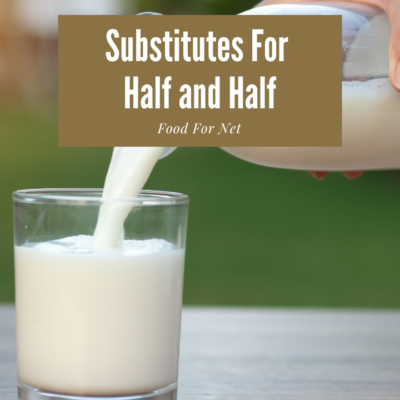
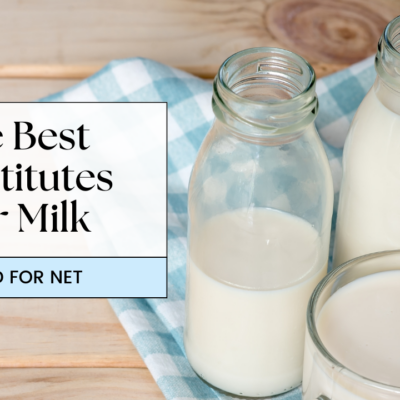



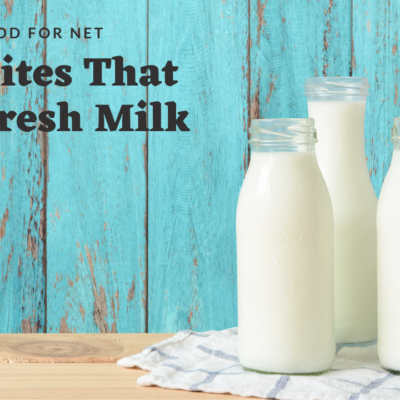
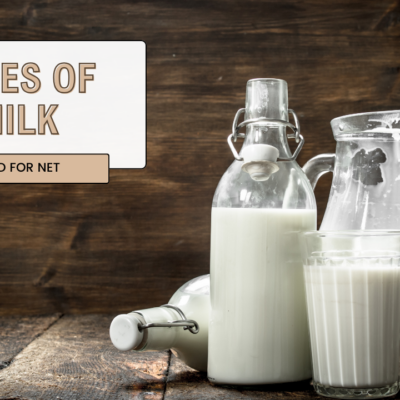

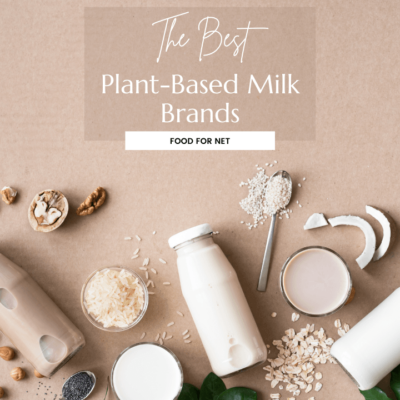
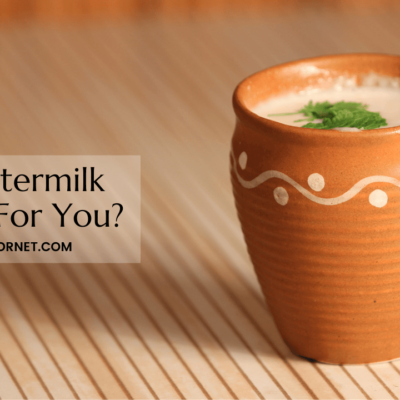
 Unexpected And Exotic Citrus Fruit
Unexpected And Exotic Citrus Fruit
Leave a Reply